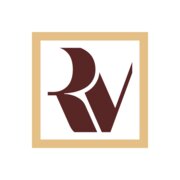Best Admiralty & Maritime Lawyers in Brazil
Share your needs with us, get contacted by law firms.
Free. Takes 2 min.
Or refine your search by selecting a city:
List of the best lawyers in Brazil
About Admiralty & Maritime Law in Brazil
Admiralty and maritime law in Brazil, referred to locally as "Direito Marítimo," is a specialized area of law that governs legal issues and disputes related to the sea, maritime trade, shipping, and navigation. This legal field is critical in a country like Brazil, which boasts an extensive coastline and is a significant player in global maritime commerce. The legal framework comprises domestic laws, international treaties, and conventions like the United Nations Convention on the Law of the Sea (UNCLOS), which Brazil has ratified. Key areas include shipping contracts, maritime insurance, vessel registration, and labor issues involving seafarers.
Why You May Need a Lawyer
Engaging a lawyer with expertise in admiralty and maritime law might be necessary in several situations:
- Shipping Disputes: Conflicts relating to charter parties, cargo claims, and bills of lading.
- Vessel Registration and Financing: Navigating the complex legalities of registering vessels and securing maritime financing.
- Environmental Concerns: Handling legal aspects of marine pollution or compliance with environmental regulations.
- Accidents and Liabilities: Addressing legal responsibilities in the case of collisions, salvage rights, or personal injury claims at sea.
- Commercial Fishing and Offshore Resources: Legal support in licensing and regulatory adherence for commercial fishing and offshore energy projects.
Local Laws Overview
The maritime sector in Brazil is governed by a combination of local legislation and international laws. Here's a brief overview of the relevant laws:
- Brazilian Commercial Code: Provides a foundational basis for commercial shipping regulation in Brazil.
- Law of Water: Outlines the management and protection of coastal waters and ocean resources.
- Provisions for Vessel Registration: Governed by entities such as the Maritime Court and Capitania dos Portos.
- National Environmental Policy Law: Addresses environmental protection, particularly with respect to maritime operations.
- Arbitration Act: Permits arbitration as a method for resolving maritime disputes, accommodating the often international nature of maritime law.
Frequently Asked Questions
What are the main regulatory bodies for maritime law in Brazil?
The key regulatory bodies include the Navy via the Directorate of Ports and Coasts, the Brazilian Maritime Authority, and the Maritime Court.
How is vessel registration handled in Brazil?
Vessel registration is managed by the Maritime Authority, and it covers both domestic registration and compliance with international conventions to which Brazil is a party.
What should I do if involved in a maritime accident?
First, ensure immediate safety and report the incident to the Maritime Authority. It's advisable to contact a maritime lawyer to handle any legal proceedings.
How are disputes over cargo handled?
Cargo disputes may be resolved through Brazilian courts or arbitration, depending on contractual stipulations. Lawyers often facilitate these processes.
What rights do maritime workers have in Brazil?
Maritime workers are protected under Brazilian labor laws, which cover working conditions, safety, and dispute resolution.
What is the role of the Maritime Court?
The Maritime Court oversees issues related to maritime law, including investigations of maritime accidents and issuing decisions on maritime disputes.
Do I need a lawyer for environmental compliance in maritime activities?
Yes, especially since environmental compliance can be complex and involve significant legal and regulatory challenges.
Can foreign entities own vessels in Brazil?
Foreign ownership is permitted but subject to restrictions and requires compliance with Brazilian maritime and commercial laws.
What is the process for handling maritime pollution incidents?
Report the incident to the Brazilian Maritime Authority and seek legal assistance immediately to navigate environmental liability and compliance issues.
How can charter party disputes be resolved in Brazil?
Disputes can be resolved through litigation or arbitration, with many charter contracts mandating specific forums or methods for dispute resolution.
Additional Resources
Here are some resources that can assist individuals involved in maritime activities:
- Brazilian Navy's Directorate of Ports and Coasts
- Brazilian Maritime Authority
- Ministry of Transport, Ports, and Aviation
- The Maritime Court (Tribunal Marítimo)
- Environmental Protection Agency (IBAMA)
- Local law firms specializing in maritime law
Next Steps
If you require legal assistance in admiralty and maritime matters, consider these actions:
- Identify the specific legal issue you are facing and gather relevant documentation.
- Consult with a reputable maritime lawyer who understands both Brazilian laws and international maritime standards.
- Utilize resources from regulatory bodies to stay informed about any legal obligations or updates.
- Prepare for meetings with your legal counsel by listing questions to discuss your situation comprehensively.
By proactively seeking legal advice and understanding your rights and obligations, you can effectively navigate the complex field of admiralty and maritime law in Brazil.
Lawzana helps you find the best lawyers and law firms in Brazil through a curated and pre-screened list of qualified legal professionals. Our platform offers rankings and detailed profiles of attorneys and law firms, allowing you to compare based on practice areas, including Admiralty & Maritime, experience, and client feedback.
Each profile includes a description of the firm's areas of practice, client reviews, team members and partners, year of establishment, spoken languages, office locations, contact information, social media presence, and any published articles or resources. Most firms on our platform speak English and are experienced in both local and international legal matters.
Get a quote from top-rated law firms in Brazil — quickly, securely, and without unnecessary hassle.
Disclaimer:
The information provided on this page is for general informational purposes only and does not constitute legal advice. While we strive to ensure the accuracy and relevance of the content, legal information may change over time, and interpretations of the law can vary. You should always consult with a qualified legal professional for advice specific to your situation.
We disclaim all liability for actions taken or not taken based on the content of this page. If you believe any information is incorrect or outdated, please contact us, and we will review and update it where appropriate.
Browse admiralty & maritime law firms by city in Brazil
Refine your search by selecting a city.
















